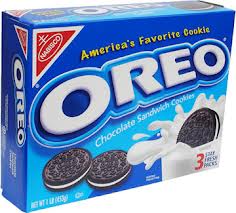Does Language Inspire Brand Names, or Do Brand Names Inspire Language?
/This fall, the Hostess Baking Co., an iconic American business, filed for bankruptcy. Under various names, it had produced some of the most famous baked goods in the U.S. for over a century. Sales of these products have fallen off as Americans have begun to look for healthier snack alternatives. If you talk with your American friends and co-workers, they can tell you of their own life experiences with perhaps three of their most famous snack cakes: the Twinkie, the Ding Dong, and the Ho Ho.
Hostess Twinkies Box
Hostess Ding Dongs
Hostess Ho Hos
Interesting to note is that all three product names have meanings in American slang or regular speech. The question is: which came first, the slang or the brand name? Checking into their origins, we know that the Twinkie was created over 80 years ago, with its name inspired by another company using the word “twinkle.” Both the Ding Dong and the Ho Ho were much more recent Hostess inventions.
The expression “ding dong” has had two meanings: either the sound of a doorbell or, in slang, someone who is an idiot or fool (also called a ding-a-ling). The expression “ho ho” is primarily used to suggest amusement (or at Christmastime, the laughter of Santa Claus: Ho, ho, ho!) in American English.* The brand names were clearly invented after these two expressions had their meanings.
When Twinkie snack cakes were invented, however, the name “twinkie” had no other meaning. Since then, many meanings have sprung up.
“Twinkie” in American English
• someone who is physically weak or soft (like a snack cake)
• a cute, young gay male (slang, sometimes also: a twink)
• someone who has gained celebrity status but is in reality a lightweight (without real credentials)
• Minnesota Twinkies = nickname for the Minnesota Twins baseball team when they are playing badly (the sense of weak, ineffectual men)
• an Asian American = negative slang for someone who looks Asian (yellow) on the outside but behaves like mainstream Americans (white) on the inside, in other words, an Asian who has given up his/her original cultural values**
• Twinkie legal defense = when a defense lawyer says his/her client was not in control of his/her mind (and therefore not guilty) because of an altered mindset, for example, because of eating such a bad diet of unhealthy snack cakes
In the case of the Twinkie, American culture took the identity of the product and adapted it into useful expressions in its vocabulary. How many English expressions can you think of which came from a brand name? Do you know which came first? Do you have examples from other languages and cultures?
* A newer slang sense of Ho Ho involves a black (or African American) parallel for Twinkies and Asian Americans (discussed above): someone who is black in appearance but has mainstream American (white) values on the inside. This meaning is more commonly expressed in the brand name “Oreo” (a dark brown cookie with white filling).
** “Banana” is another expression for this kind of Asian American.
sources: iStock Photo (co-worker photo), Wikipedia (all other photos)









